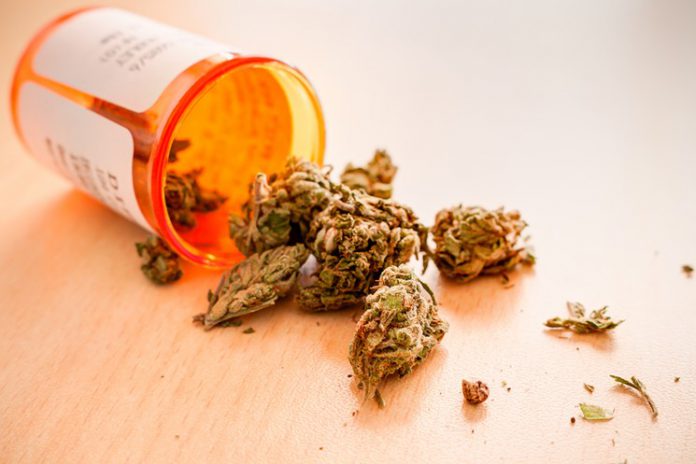A new study has shown how marijuana could be an effective treatment for pain relief and insomnia, especially for patients who are not looking to take over-the-counter (OTC) and prescription medications for pain and sleep, including opioids.
The study was published in the Journal of Psychoactive Drugs.
Researchers analyzed at least 1,000 people who are taking legalized marijuana in Colorado. They found that among the 65 percent of people who were taking medical marijuana for pain, 80 percent of them found it extremely effective.
This finding led to 82 percent of these people being able to reduce or stop taking OTC pain medications, and 88 percent being able to stop taking opioids for pain.
The researchers also found that 74 percent of the 1,000 participants used medical marijuana for sleep issues, out of which, 84 percent of them said it had helped them and 83 percent said that they had reduced or stopped taking prescription or OTC sleep medications.
The study suggests that marijuana could help lower opioid use. However, the researchers said that more studies are required to clearly understand the potential benefits of marijuana on health.
Dr. Gwen Wurm, Assistant Professor of Clinical Pediatrics at the University of Miami Miller School of Medicine, said, “Approximately 20% of American adults suffer from chronic pain, and one in three adults do not get enough sleep.”
Conventional prescription and OTC painkillers can help but they come with serious side effects. For example, opioids work by depressing the respiratory system, which means that an opioid overdose can be fatal. In addition, sleeping pills can increase the risk of dependence.
To find out more about the use of marijuana for pain and insomnia, Dr. Wurm and her colleagues looked at survey data from people who purchased marijuana from two retail stores in Colorado, where it is legal for both medical and recreational use.
Dr. Wurm said, “In states where adult use of cannabis is legal, our research suggests that many individuals bypass the medical cannabis route (which requires registering with the state) and are instead opting for the privacy of a legal adult use dispensary.”
The study suggests the theory that providing access to medical marijuana could lower the use of prescription painkillers, including opioids that have serious side effects.
Dr. Wurm added, “Non-steroidal anti-inflammatory drugs (NSAIDs) such as ibuprofen cause GI bleeding or kidney damage with chronic use. Paracetamol (Acetaminophen) toxicity is the second most common cause of liver transplantation worldwide, and is responsible for 56,000 ER visits, 2600 hospitalizations, and 500 deaths per year in the U.S.” “The challenge is that health providers are far behind in knowing which cannabis products work and which do not. Until there is more research into which cannabis products work for which symptoms, patients will do their own trial and error, experiments, getting advice from friends, social media and dispensary employees,” explained Dr. Wurm.





















